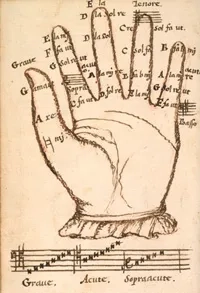The Music History Placement exam will determine whether you are placed into the graduate refresher courses MHL 602 and/or MHL 603, or whether you may pass directly into upper-level seminars.
The exam lasts 1.5 hours, and includes three sections:
- General questions about the history of Western classical music from 1700 to 1900, and from 1900 to the present
- Listening and score identifications and discussion covering Western classical music repertoire from 1700 to the present
- Critical thinking skills: reading comprehension skills; reflective essays (2)
Because the exam is designed to test material learned at the undergraduate level, no advance preparation is necessary. It’s a tool for placing you in the classes that will best serve your needs.
N.B.: If you did not take undergraduate music history courses that covered Western classical music from 1700-2000, we recommend that you consider skipping the test and enrolling for MHL 602 and MHL 603 (one per semester). These courses earn you credits that count toward your degree.
On the test, all of your answers and words must be your own. If you use phrases, sentences, or paragraphs from elsewhere (a textbook, any online source, etc.), or if your answers are the same as any other students’, you will receive zero credit.
As a courtesy, we do offer some study tips, and make some materials available in advance (see below).
Section I: General Knowledge about the History of Music
This section includes roughly forty questions (fill in the blank, multiple choice, and short answer) that test your general knowledge of Western classical music history of the 18th-19th and of the 20th-21st centuries (with an equal number of questions for each era).
Section II: Score Identification and Discussion
In this section, you will be asked to identify no more than fifteen musical excerpts, roughly half from the 18th and 19th centuries and half from the 20th and 21st. Within the exam you will be given an audio clip, score excerpt, or both, for each question. For each excerpt, you will be asked to name the composer, genre (symphony, opera, string quartet, etc.), and date (within 25 years). In addition, you will be asked specific questions regarding musical features such as texture, form, text setting, etc. All excerpts will be taken from repertoire published in the Oxford History of Western Music, College Edition score anthologies, Volumes 2 and 3, plus the following composers from Volume 1: J. S. Bach, Buxtehude, Corelli, Handel, and Vivaldi.
Section III: Critical Thinking Skills
This section is divided into two parts:
- Part A tests reading comprehension by asking you to read at least one short selection, then answer related multiple choice and fill in the blank questions.
- Part B asks you to reflect on and write about your own experiences with music history (as a musician and/or a student), first for the period of early music through 1900, and secondarily for music from 1900 to the present.
If you have further questions, email Rachel Vandagriff (
einaqntevss@fspz.rqhude.mcfs@ffirgadnavr
). Students who have gotten their BM from SFCM in the last two years should contact Prof. Stalarow to check-in about their placement requirements.
